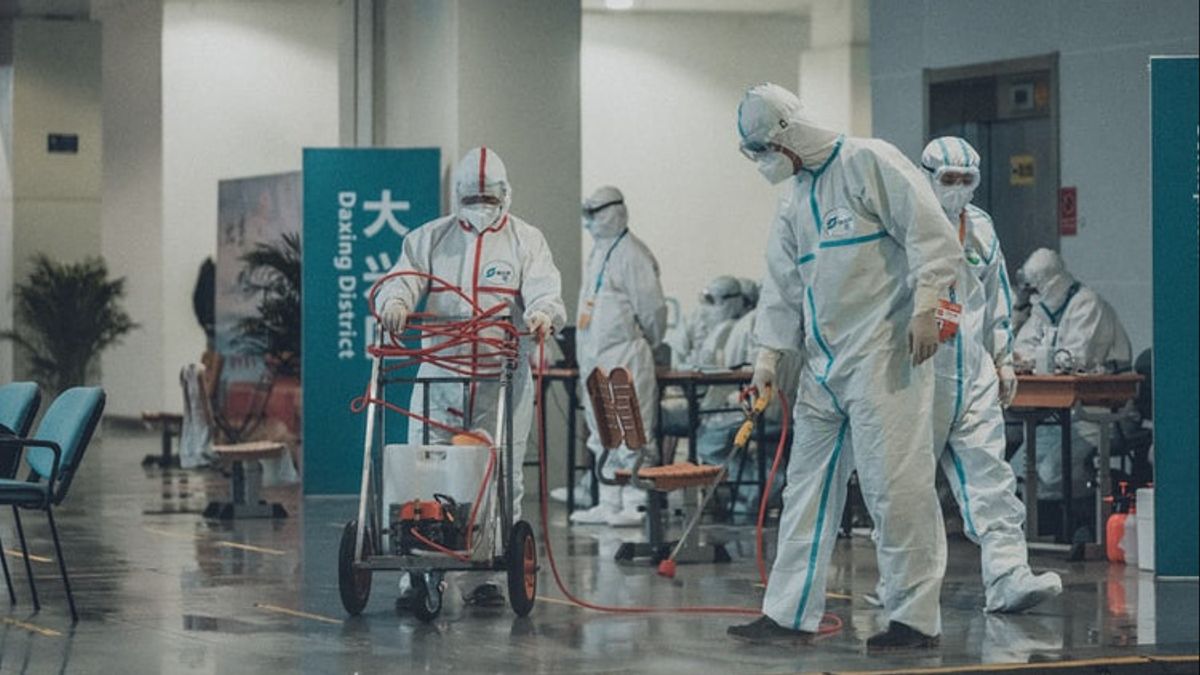JAKARTA - Last month, six Chinese medical professionals disembarked from an Air Serbia jet in Belgrade, the capital of Serbia. They were greeted by the red carpet and Serbian President Aleksandar Vucic and a number of the country's cabinet ministers. After a short greeting, Vucic kissed the flag of Serbia, then China.
Serbia is one of China's closest European allies. While in Serbia, the team from China provided direct guidance to help fight the COVID-19 that has swept across the world.
The move by China is part of a broader push by China to assert global leadership in fighting COVID-19. In fact, China has repeatedly faced criticism from the United States (US) and several other countries, that the Bamboo Curtain country failed to respond to the beginning of the COVID-19 outbreak.
"There is no doubt that China will use the COVID-19 outbreak to further act in its own national interest," said Gordon Houlden, a former Canadian diplomat and director of the University of Alberta's China Institute.
"This includes encouraging the model of government to be used, in this case the epidemiological methodology," he added.
The methodology is based on China's aggressive and comprehensive approach to fighting the virus, including the lockdown in Wuhan and the knowledge it builds on as the first country to suffer the COVID-19 outbreak. China's Foreign Ministry declined to comment.
However, the ministry's spokesman, Zhao Lijian, said the aim of sending the medical team was to share China's experience fighting the virus, not to export the management model abroad. Zhao Lijian made the statement at a press conference.
China's biotech company BGI group will open two #coronavirus testing labs in Serbia to help fight the # COVID19 pandemic, according to an agreement it signed with the Serbian government Wednesday. pic.twitter.com/GaroDlGOmE
- China Science (@ChinaScience) April 8, 2020
Apart from Serbia, Beijing has sent medical teams to Cambodia, Iran, Iraq, Laos, Pakistan, Venezuela and Italy, the only G7 countries that have joined the Belt and Road Initiative and have been hardest hit by COVID-19. Most recently, last week, a 12-member Chinese medical team arrived in the Philippines to help fight the virus.
China's pick-up system excludes donations and sales of supplies to around 90 countries. In addition, China has also held a number of video conferences with countries and international organizations to share knowledge. This was said directly by the China International Development Cooperation Agency.
"We hope that other countries will not repeat China's tragedy," said Peng Zhiqiang, a specialist from the Guangdong Provincial Center for Disease Control and Prevention and leader of the Chinese team in Serbia.
The response to China's arrival to countries like Serbia has been positive so far. In Belgrade, a team from China visited a memorial to those killed in 1999. In 1999, US bombs hit the Chinese embassy in Serbia.
Upon the team's arrival, a plaque was put up on the street of central Belgrade, along with a photo of Chinese President Xi Jinping and large banners in Chinese and Serbian reading, "Thank you, brother Xi." At the suggestion of a team from China, Serbia has also started quarantining people with mild symptoms and deploying troops to build hospitals for patients with mild symptoms.
Serbia's biggest tabloid "Informer" rents billboards in Belgrade. It says "Thank you, brother Xi" after China sends medical supplies to Serbia. pic.twitter.com/95ogFtH4lK
- Sergej Dojcinovic (@Serdjosega) March 30, 2020
Trust experts from China
The Chinese medical team advised several countries to build emergency hospitals, the same way they built emergency hospitals in Wuhan. The Chinese medical team also provided virus management measures, said Peng and Liang Wenbin, members of the Chinese medical team who were sent to Cambodia.
These management measures include quarantine or isolation of people with mild symptoms to stop the initial spread of the virus, methods of treating complications, and large-scale temperature checks. Serbian officials say they welcome that input, which they say has helped slow the spread of COVID-19.
"We are changing our approach, and with the support of experts from China, we are carrying out more extensive testing," said a source close to the Serbian presidency who declined to be named.
"Doctors from China welcome the steps taken by Serbia, and we have embraced the Chinese model of reaching and treating as many infected people as possible," said the person.
Influence Cambodian policies
In Cambodia, the issuance of visas for international visitors was severely restricted on the advice of a team from China. The country is gearing up for an influx of refugees returning for the Khmer new year. Cambodia itself is a country that is a staunch supporter of China in Southeast Asia.
Cambodia is also considering the team's suggestion of changing hotels and schools that could be used as quarantine places, said Liang, a member of the Chinese team. "The latest restrictions to limit the mobility of personnel and to prohibit foreigners from coming into the country are the control measures China is using," he said.
Despite attempts at medical visits, China continues to face sharp criticism from the US. China, which constantly withholds preliminary information about the virus and underestimates the risks from COVID-19, is turning the virus into a pandemic. For the US, this is not a tragedy, but the fruit of neglect.
"I am skeptical that many countries will soon forget about China's initial missteps that contributed to the spread of the global virus," said Ryan Hass, senior Asia director on the National Security Council of Barack Obama's current Brookings Institution.
The English, Chinese, Japanese, Arabic, and French versions are automatically generated by the AI. So there may still be inaccuracies in translating, please always see Indonesian as our main language. (system supported by DigitalSiber.id)









